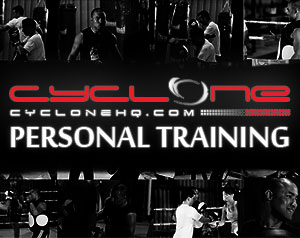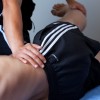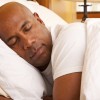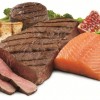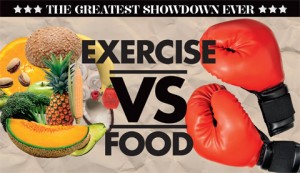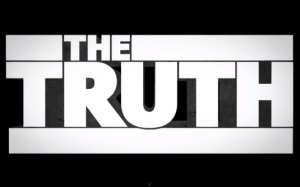
One of the many new year resolutions I hear this time of year is to: "exercise more and lose weight".
Coming from someone who loves exercise and makes a full time living by prescribing exercise, this may seem absurd:
"Exercise will not make you lose weight".
There I said it. Exercise and Weight-Loss contradict each other.
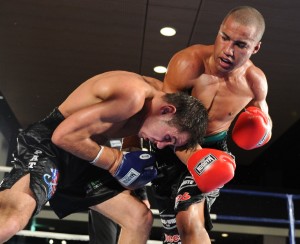 In over 12 years as an amateur and professional boxer (now coach), I've had to constantly lose the most weight possible, that gave me the most stamina, arousal and power to compete with the best competition. I worked with the best dieticians and tested nearly every conventional and extreme theory of weight-loss including the common "train hard, eat clean to slowly drop weight over time" method.
There were times I was obsessed with hopping on the scales every hour. I went from fighting too light, then too heavy, and have gone through a lot of discomfort before I found where I perform best. I speak only from my direct experience.
In over 12 years as an amateur and professional boxer (now coach), I've had to constantly lose the most weight possible, that gave me the most stamina, arousal and power to compete with the best competition. I worked with the best dieticians and tested nearly every conventional and extreme theory of weight-loss including the common "train hard, eat clean to slowly drop weight over time" method.
There were times I was obsessed with hopping on the scales every hour. I went from fighting too light, then too heavy, and have gone through a lot of discomfort before I found where I perform best. I speak only from my direct experience.
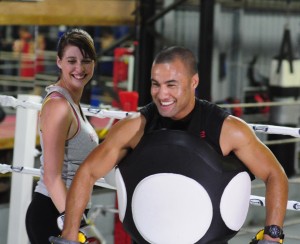 So, if exercise doesn't make you lose weight, what's the point of exercise?
Here let me clear it up:
So, if exercise doesn't make you lose weight, what's the point of exercise?
Here let me clear it up:
-
97% of pure weight-loss (whether it is done healthy or not) is diet related or more specifically "calorie intake".
-
On the flip side: Improvements in performance, fitness, stamina, mental arousal, physique, energy, skill, focus etc is largely exercise related.
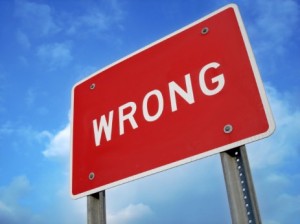 And this is why exercising won't make you lose weight:
Exercise increases your appetite, - which by the way is a healthy sign of peak performance, fitness, being in the zone, etc.
And this is why exercising won't make you lose weight:
Exercise increases your appetite, - which by the way is a healthy sign of peak performance, fitness, being in the zone, etc.
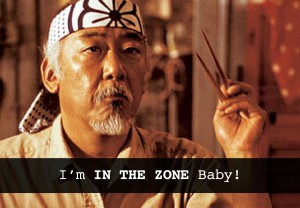 ..but since 97% of weight loss is connected to the amount of calories consumed, and exercise increases appetite, exercise will - therefore - not induce weight loss.
Consistently consuming a deficit of calories expended daily is key to long term weight loss - the kind of weight loss that gets you to the next level of "lean and mean".
Keep in mind: lean and skinny but untoned and pathetic in performance is highly undesirable.
This calorie deficit process is: Easy said, very hard to do.
It takes some discomfort, lifestyle adjustments and a paradigm shift, before you reap the rewards. Some people just aren't willing to pay that price or aren't aware of the discomfort and discipline involved in losing weight.
..but since 97% of weight loss is connected to the amount of calories consumed, and exercise increases appetite, exercise will - therefore - not induce weight loss.
Consistently consuming a deficit of calories expended daily is key to long term weight loss - the kind of weight loss that gets you to the next level of "lean and mean".
Keep in mind: lean and skinny but untoned and pathetic in performance is highly undesirable.
This calorie deficit process is: Easy said, very hard to do.
It takes some discomfort, lifestyle adjustments and a paradigm shift, before you reap the rewards. Some people just aren't willing to pay that price or aren't aware of the discomfort and discipline involved in losing weight.  Besides, we all love food.
Look: The benefits of doing hard exercise are only realised, when we replenish our bodies with quality calories to repair muscle tissue and the nervous system.
However, this "proper repair and recovery" will also stagnate the process of weight loss. Even the most extreme among us can not maintain high-level performance, while eating less calories than expended especially with intense exercise - eventually you will hit a wall.
Besides, we all love food.
Look: The benefits of doing hard exercise are only realised, when we replenish our bodies with quality calories to repair muscle tissue and the nervous system.
However, this "proper repair and recovery" will also stagnate the process of weight loss. Even the most extreme among us can not maintain high-level performance, while eating less calories than expended especially with intense exercise - eventually you will hit a wall. Solution: It is important that weight loss and performance are different parts of the training cycle.
Solution: It is important that weight loss and performance are different parts of the training cycle.
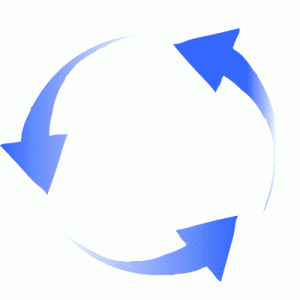 Outdated is the notion of just training hard, in the same way, all the time. Laziness and low intensity over the long term falls short of results also. Timing and cycling training loads (not resting altogether) is the grey area that most people find hard to adjust to - because it swings from going hard, to going easy and we'd rather be one or the other. Note: Quality nutrition is paramount at all times (see a dietician for specifics).
This is my point:
Outdated is the notion of just training hard, in the same way, all the time. Laziness and low intensity over the long term falls short of results also. Timing and cycling training loads (not resting altogether) is the grey area that most people find hard to adjust to - because it swings from going hard, to going easy and we'd rather be one or the other. Note: Quality nutrition is paramount at all times (see a dietician for specifics).
This is my point:
- Exercise plays the role of keeping the body and mind healthy for peak performance. Exercise increases appetite.(especially high intensity exercise, which done properly has excellent health benefits).
- Calorie deficit (eating less) plays the role of weight loss. However, coupled with intense exercise over many weeks, is not good for your performance.
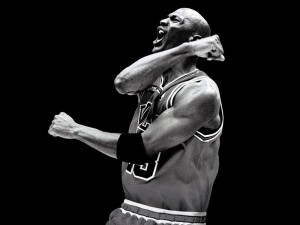 To have both weight loss and peak performance, first understand the difference between the two. After getting your head around that, implement some lifestyle habits that are manageable, and targeted at each phase while staying committed to training.
I'm not just regurgitating some theory, research or article.
I'm talking from cold hard experience. Any professional who makes a living from how much they weigh and physically exerting themselves with years of experience know exactly what I'm talking about.
Intense exercise is one of the best ways to feel good, shape your body and be on top of your game.
To get any benefit from intense exercise, you can not deprive yourself of nutrients that will replenish your body.
To have both weight loss and peak performance, first understand the difference between the two. After getting your head around that, implement some lifestyle habits that are manageable, and targeted at each phase while staying committed to training.
I'm not just regurgitating some theory, research or article.
I'm talking from cold hard experience. Any professional who makes a living from how much they weigh and physically exerting themselves with years of experience know exactly what I'm talking about.
Intense exercise is one of the best ways to feel good, shape your body and be on top of your game.
To get any benefit from intense exercise, you can not deprive yourself of nutrients that will replenish your body.
- Fresh and Nutritious Food
- Invest in Recovery
- Hydration is Vital
- Effective Sleep
- Mindset
- Lean protein to repair muscles
There’s a difference between exercise and weight loss.
People who come to me for weight loss, get results via being kept accountable to a calorie deficit - not from the physical training we do. People who come to me for physical boxing training can get great benefits in fitness, mental focus, technique, physique etc while undertaking activity that maintains weight management. That right there are two separate objectives that need to be integrated with careful planning and discipline.
Separate the phases and have a clear objective in each.
DO NOT MIX THE WEIGHT-LOSS PHASE with THE HIGH INTENSITY, PERFORMANCE PHASE.
Anyone is welcome to disagree with me and I respect that people may have different experiences. This is simply the method I've found that works best.
But for those who disagree, I would be interested in:- Your history on achieving elite level performance with weight related sports and how long you've maintained that level yourself?
- How many everyday people have you helped go from extremely overweight to extremely lean? (below 10% body fat and below national average weight - not just slightly obese people, who want to have some fun in a group fitness session and lose a little fat here and there).
 Below are some reputable articles that actually argue that exercise makes you FAT. And it does - unless you are informed, determined and have professional support:
Below are some reputable articles that actually argue that exercise makes you FAT. And it does - unless you are informed, determined and have professional support:
- http://www.precisionnutrition.com/exercise-still-doesnt-work
- http://www.theguardian.com/lifeandstyle/2010/sep/19/exercise-dieting-public-health
- http://www.dailymail.co.uk/health/article-2373553/Does-exercise-make-FAT-Experts-say-deluded-calories-burn-doing--eat.html





